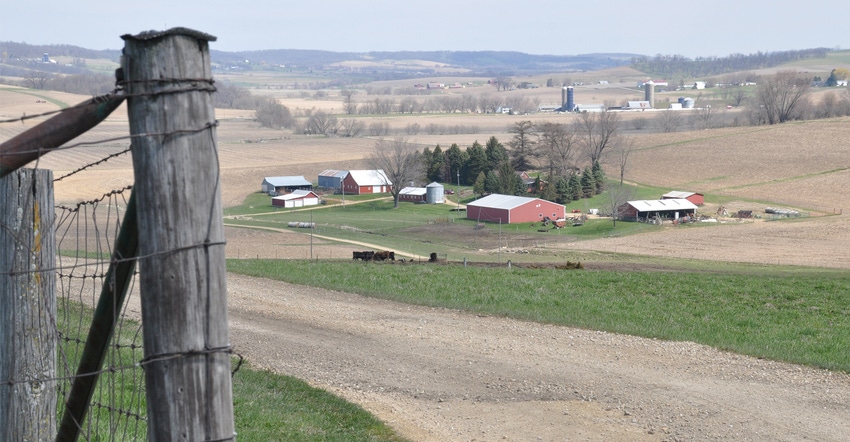February 1, 2021

Does anyone ever go to an estate planning attorney and say this? “I really don’t care about trying to minimize estate, capital gain and income taxes. Just ignore taxes as we plan my estate.” Of course not. Everyone wants to legally minimize taxes. By contrast, I am pretty sure some farmers go to their estate planning attorney thinking that avoiding taxes is the only reason to be there.
If that is you, you are letting politicians control your farm.
Imagine — for a few paragraphs at least — that taxes do not exist. Will your estate plan do all the good that it could?
“What good could an estate plan do if there were no taxes?” you ask.
A plan is “an orderly or step-by-step conception or proposal for accomplishing an objective.” Your estate plan is your step-by-step conception or proposal to carry out your vision for the future of your farm and family. The toughest part of an estate plan, the part you probably don’t like to spend time thinking about, is clarifying and capturing the vision. It is uncomfortable because you must imagine how things will be when you are not calling the shots. But it is there that your plan can do the most good.
My experience with farmers suggests three things:
You are thinking about the future. You have someone in mind to be your successor. You probably want other children to get some of your estate but still protect the farmer’s livelihood. These are general goals, the good you want to do.
You haven’t figured out how to put those objectives in writing. There are too many “what-ifs” that come up when you try. So your goals remain vague.
Stumped, you put off doing a serious estate plan. But you console yourself with the idea that “the kids know what I want, and they will work it out.” You might justify your procrastination with, “Besides, I can’t plan until I know what the taxes will be.”
What you really want
Let’s wrestle the nontax issues to the ground. What happens if you become disabled and how you leave your farm to heirs is far more important than taxes. Professionals with experience can help you sort out the what-ifs, sharpen your vision and commit it to a functional plan.
Do you want to assure a smooth transition of the control of your affairs if you would become disabled? That might do a lot of good. Do you want the successor-farmer to have favorable terms for renting your land and equipment? Spell it out — otherwise your trustee or power-of-attorney agent would have to violate his or her fiduciary duties.
Looking out further, what instructions and protections do you want to include as the farm passes on to your spouse, then to other heirs? What good can you do by including appropriate protections and instructions? The following can be addressed in trusts you create for your heirs:
Are there specific assets (machinery, land, your corporation) that should pass to a particular heir?
How should unspecified assets be divided among all intended heirs?
If you want nonfarming heirs to benefit from land, but not be able to sell away from the farmer, what reasonable and enforceable stipulations should you include?
Do you want to encourage heirs to keep inherited land? What incentives might you include?
What if an heir gets sued or divorced? Would you like their inheritance to be protected?
Because future estate taxes are so uncertain, would you want an heir who is financially successful to have broad control of their inheritance without causing it to inflate the size of their estate?
These are merely a start, and each answer will raise more questions. But with the right help, you can develop a plan that will accomplish your personal goals and do all the good it can.
“But what about the taxes?” you ask. Of course, there are taxes to deal with. But once your personal goals are clear, tax planning is more or less automatic. An attorney who knows your personal goals must write your plan in a way that minimizes the taxes under current law. Then, as tax law changes, any attorney worth his or her salt will have a systematic process to provide regular updates. Tax law updates are simply maintenance work — an oil change and not an overhaul, you might say — to keep your estate plan humming along to deliver all the good you intend.
Ferguson is an attorney who owns The Estate Planning Center in Salem, Ill. Learn more at thefarmersestateplanningattorneys.com. The opinions of this writer are not necessarily those of Farm Progress/Informa.
About the Author(s)
You May Also Like






